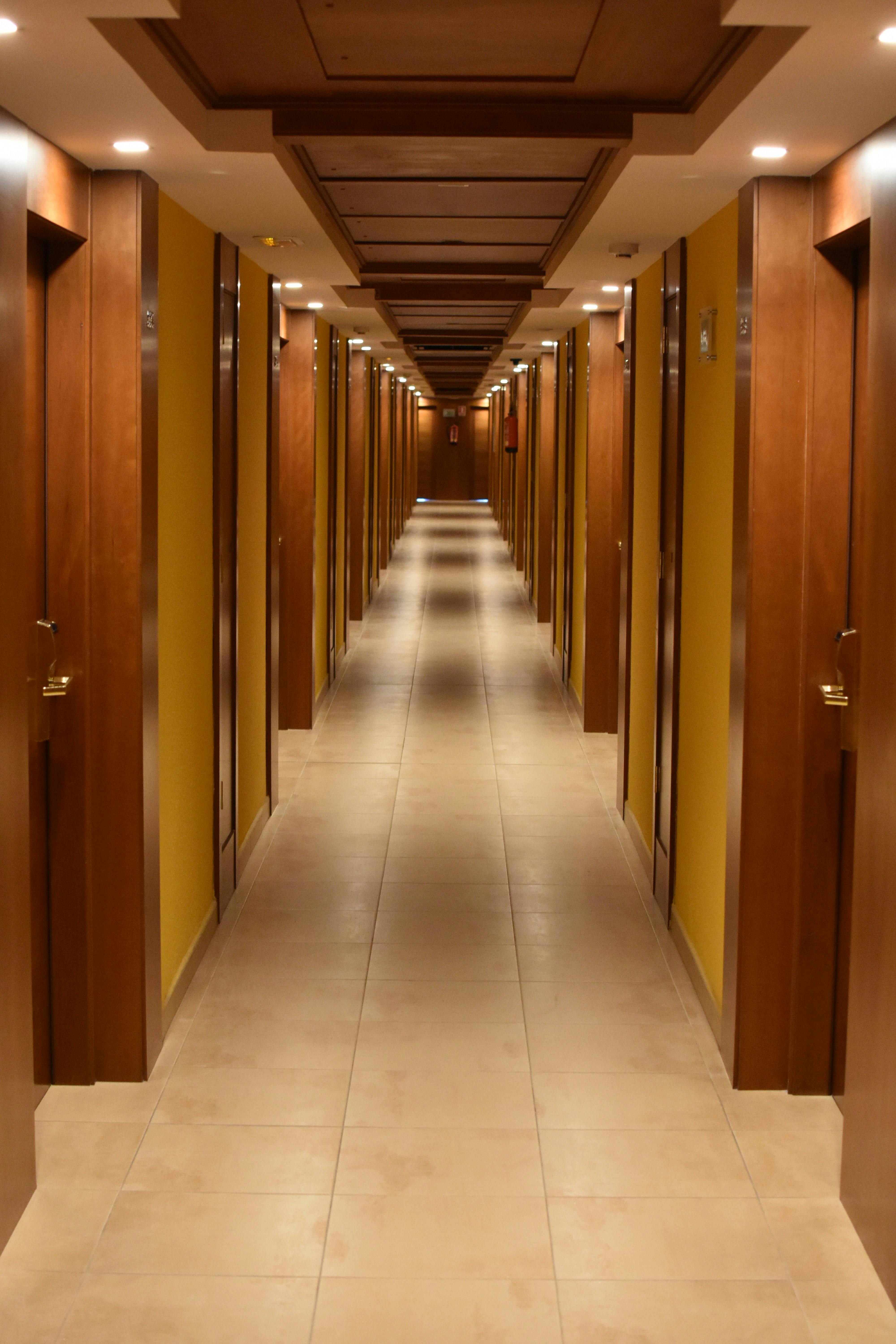Hotel Renovation Benefits vs. Cost: A North Carolina Owner's Strategic Guide

Table of Contents
Introduction: The Million-Dollar Question
For any hotel owner in North Carolina, a major renovation represents one of the most significant capital investments you'll make. The price tag can be daunting, especially when considering the complexities of projects across our diverse state—from the luxury resorts of Asheville to the coastal properties of the Outer Banks. But what many owners fail to consider is that the cost of not renovating can be even higher in the long run.
The hospitality landscape in North Carolina has transformed dramatically in recent years. With record tourism numbers—reaching over 43 million visitors annually—and increasing competition from new boutique properties and established brands upgrading their offerings, standing still is not an option. The question isn't whether you should renovate, but rather how to strategically approach renovation to maximize your return on investment.
North Carolina Insight: According to Visit North Carolina, tourism spending reached $33.3 billion in 2023, with hotel revenue growing at 8.2% annually. Properties that completed strategic renovations saw 22% higher RevPAR growth than non-renovated competitors.
In this comprehensive guide, we'll provide a clear framework for analyzing the real ROI of a hotel renovation specifically for North Carolina properties. We'll break down costs, explore tangible benefits, and provide actionable strategies to ensure your renovation delivers maximum financial returns while enhancing guest experience.
The 'Cost' Side: Acknowledging the Investment
Understanding the full scope of renovation costs is crucial for North Carolina hotel owners. Costs can vary significantly depending on your property's location, size, age, and renovation scope. Let's break down the primary cost components:
Hard Costs
- •
Construction and labor expenses
- •
Building materials and finishes
- •
Furniture, fixtures, and equipment (FF&E)
- •
Plumbing, electrical, and HVAC systems
Soft Costs
- •
Architectural and interior design fees
- •
Engineering and consulting services
- •
Permitting and inspection fees (NC-specific)
- •
Project management and contingency
North Carolina-Specific Cost Considerations
Renovating in North Carolina presents unique factors that impact your budget:
Regional Cost Variations
| Region | Avg. Cost per Room | Key Factors |
|---|---|---|
| Charlotte Metro | $25,000 - $45,000 | High demand, premium finishes |
| Raleigh-Durham | $22,000 - $40,000 | Tech sector growth, business travelers |
| Asheville | $30,000 - $55,000 | Tourist premium, unique design requirements |
| Coastal Areas | $35,000 - $60,000+ | Hurricane codes, seasonal constraints |
While these numbers may seem substantial, it's essential to view them through the lens of long-term investment rather than short-term expense. The true question isn't "How much will this cost?" but rather "What return will this investment generate?"
The 'Benefits' Side: The Financial & Experiential Payoff
Strategic hotel renovations deliver returns across multiple dimensions—financial, experiential, and competitive. For North Carolina properties, these benefits translate directly to improved profitability and market positioning.
Benefit #1: Direct Revenue Growth (The Tangible ROI)
The most immediate impact of a well-executed renovation is increased revenue. Modern, updated hotels command premium rates and achieve higher occupancy, directly boosting your bottom line.
Increased Average Daily Rate (ADR): Renovated hotels in North Carolina typically see ADR increases of 15-35%. For example, a property in Raleigh that renovated its guest rooms increased rates from $149/night to $219/night while maintaining occupancy.
Higher Occupancy Rates: Updated properties consistently outperform competitors. A Wilmington beachfront hotel saw occupancy increase from 68% to 85% post-renovation during shoulder seasons.
Boosted RevPAR (Revenue Per Available Room): This key profitability metric combines ADR and occupancy. Renovated North Carolina hotels average 28% higher RevPAR than non-renovated competitors.

Case Study: Charlotte Boutique Hotel
A 120-room independent hotel in Charlotte invested $3.2 million in a comprehensive renovation. Results within 18 months:
32%
ADR Increase
18%
Occupancy Increase
$560K
Annual Revenue Gain
Benefit #2: Enhanced Guest Experience & Brand Reputation
In today's experience-driven economy, your property's physical condition directly impacts your reputation and ability to attract guests. Renovations transform guest perception and loyalty.

Soaring Online Reviews: Renovated properties see average review scores increase by 0.8-1.2 points. A Greensboro hotel moved from 3.7 to 4.6 stars on TripAdvisor after renovation, directly impacting booking conversions.
Attracting Premium Clientele: Modern amenities and design appeal to higher-spending business travelers and tourists. Upscale properties in Asheville now command $400+ nightly rates post-renovation.
Social Media Marketing: Creating "Instagrammable" spaces generates organic marketing. The lobby transformation at a Durham hotel generated over 5,000 social media mentions in its first three months.
Benefit #3: Competitive Edge & Future-Proofing
In North Carolina's competitive hospitality market, renovation provides crucial advantages that extend beyond immediate financial returns.
Market Dominance
Outshine competitors with modern amenities. A Raleigh hotel captured 24% market share after renovating when a new competitor opened nearby.
Increased Asset Value
Renovations typically increase property value by 25-40% of the renovation cost. A Wilmington hotel sold for $4.2M more than pre-renovation appraisals.
Operational Efficiency
Modern systems reduce costs. A Charlotte hotel reduced energy expenses by 28% after upgrading HVAC and implementing smart room controls.
The Verdict: How to Calculate Your Renovation ROI
Determining your renovation's ROI requires analyzing both costs and projected benefits. Use this framework to evaluate your potential return:
ROI Calculation Formula
This formula helps quantify your renovation's financial impact. Most North Carolina hotel renovations achieve positive ROI within 2-4 years.
Hypothetical Case Study: Outer Banks Hotel
| Metric | Pre-Renovation | Post-Renovation | Change |
|---|---|---|---|
| Rooms | 100 | 100 | - |
| ADR | $189 | $249 | +$60 (+32%) |
| Occupancy | 72% | 82% | +10% |
| RevPAR | $136.08 | $204.18 | +$68.10 (+50%) |
| Annual Revenue | $4,966,920 | $7,452,570 | +$2,485,650 |
| Renovation Cost | $3,500,000 | - | - |
| Annual ROI | [($2,485,650 + $85,000 energy savings) - $3,500,000] ÷ $3,500,000 × 100 = -26% (Year 1) | ||
| Cumulative ROI | Year 2: 42% ROI | Year 3: 110% ROI | Year 5: 246% ROI | ||
Pro Tip: Work with a North Carolina-based hotel renovation specialist who understands local market dynamics. They can help prioritize renovations that deliver the highest returns for your specific location and property type.
Conclusion: Renovation is an Investment, Not an Expense
The evidence is clear: strategic hotel renovations in North Carolina consistently deliver substantial returns that far outweigh their costs. Rather than viewing renovation as an expense, successful hotel owners recognize it as a powerful investment in their property's future profitability and competitive positioning.
The North Carolina hospitality market continues to grow at an impressive pace, but this growth brings increased competition. Properties that fail to maintain modern standards risk losing market share to newly renovated competitors and emerging boutique properties. By investing strategically in renovation, you position your property to capture premium rates, achieve higher occupancy, and build lasting guest loyalty.
Ready to Transform Your North Carolina Property?
Our construction experts are ready to answer all your questions and provide personalized advice for your renovation project.
The decision to renovate is ultimately about future-proofing your investment. In North Carolina's dynamic hospitality landscape, strategic renovation isn't just an option—it's an essential component of long-term success. By approaching renovation as an investment rather than an expense, you position your property for sustained profitability and growth in one of America's most vibrant tourism markets.
